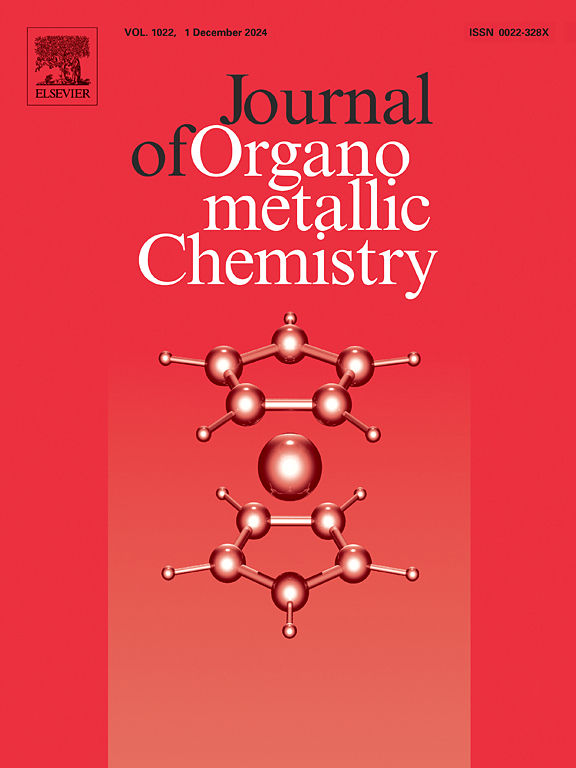The effective role of reusable Mn(III) Schiff‐base nano-catalyst in carrying out Chromene & Biginelli reactions under eco-friendly conditions
IF 2.1
3区 化学
Q3 CHEMISTRY, INORGANIC & NUCLEAR
引用次数: 0
Abstract
The development of efficient and recyclable catalysts is crucial for sustainable organic synthesis. A magnetic heterogeneous catalyst containing Mn(III) Schiff base covalently attached to Fe3O4@SiO2 nanoparticles through imidazolium linker [Fe3O4@SiO2-S-Im(Br)-SB-Mn(III)] was synthesized. The prepared nano-catalyst was characterized using various analytical methods (FT-IR, EDX, SEM, TEM, XRD, VSM, TGA, ICP-OES, and AAS). The efficiency of the nano-catalyst was investigated in the Chromene & Biginelli reactions using a one-pot three-component synthesis of 2-amino-tetrahydro-4H-chromene-3-carbonitrile and 3,4-dihydropyrimidine-2(1H)-ones/thiones derivatives. The catalyst was found to be highly efficient in the synthesis of these derivatives in water and solvent-free conditions. The results demonstrated that the products were synthesized with excellent yields (98 %) within 5–10 min under very mild conditions. The nano-catalyst was re-used for eight consecutive cycles without any significant loss of catalytic activity.

求助全文
约1分钟内获得全文
求助全文
来源期刊

Journal of Organometallic Chemistry
化学-无机化学与核化学
CiteScore
4.40
自引率
8.70%
发文量
221
审稿时长
36 days
期刊介绍:
The Journal of Organometallic Chemistry targets original papers dealing with theoretical aspects, structural chemistry, synthesis, physical and chemical properties (including reaction mechanisms), and practical applications of organometallic compounds.
Organometallic compounds are defined as compounds that contain metal - carbon bonds. The term metal includes all alkali and alkaline earth metals, all transition metals and the lanthanides and actinides in the Periodic Table. Metalloids including the elements in Group 13 and the heavier members of the Groups 14 - 16 are also included. The term chemistry includes syntheses, characterizations and reaction chemistry of all such compounds. Research reports based on use of organometallic complexes in bioorganometallic chemistry, medicine, material sciences, homogeneous catalysis and energy conversion are also welcome.
The scope of the journal has been enlarged to encompass important research on organometallic complexes in bioorganometallic chemistry and material sciences, and of heavier main group elements in organometallic chemistry. The journal also publishes review articles, short communications and notes.
 求助内容:
求助内容: 应助结果提醒方式:
应助结果提醒方式:


